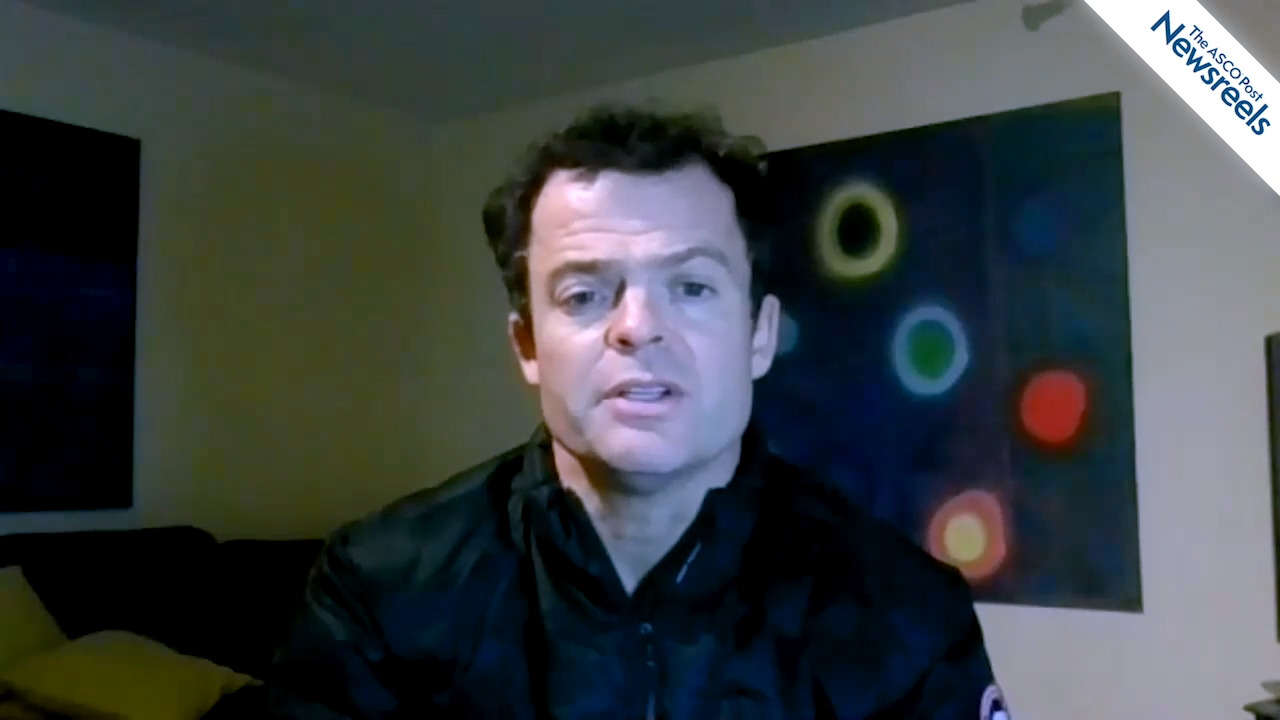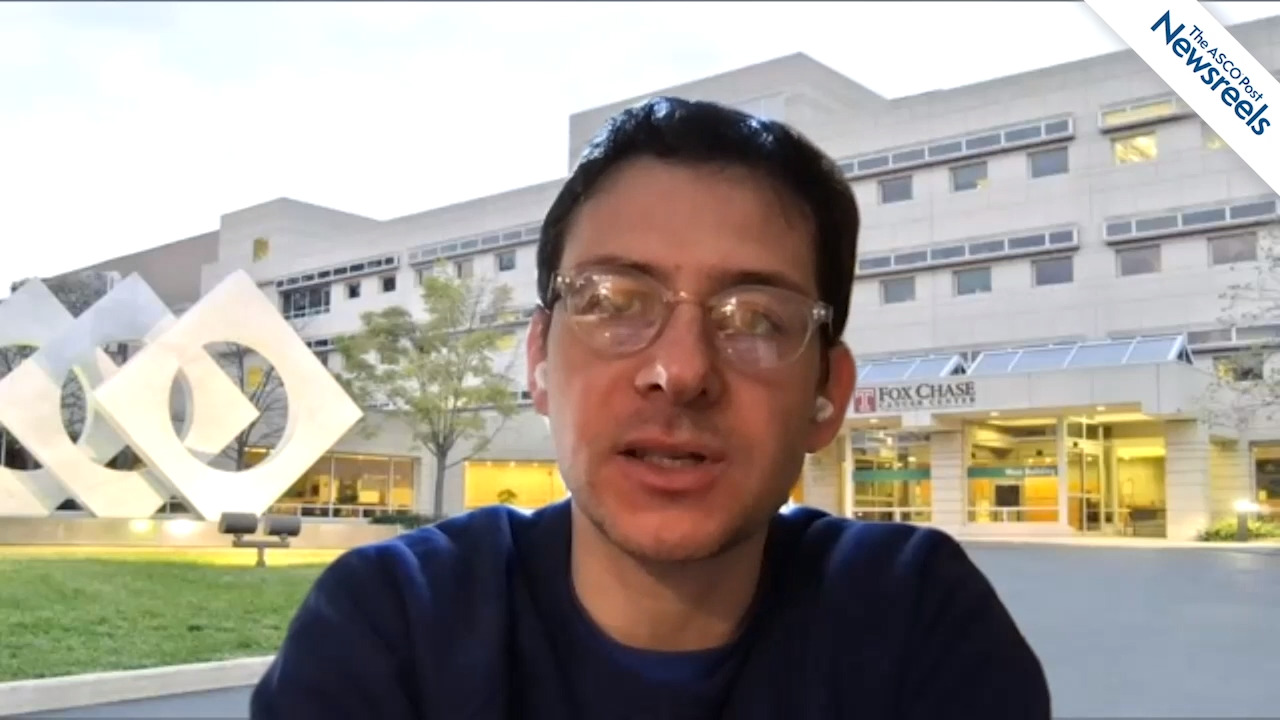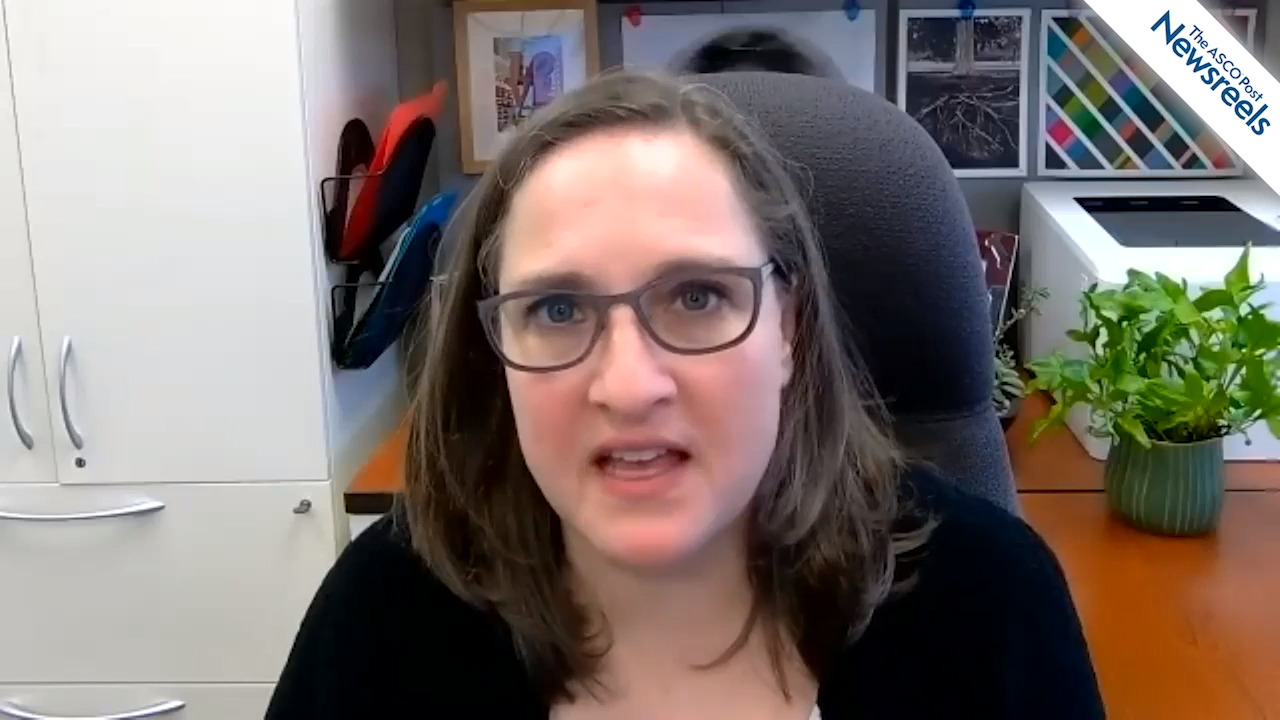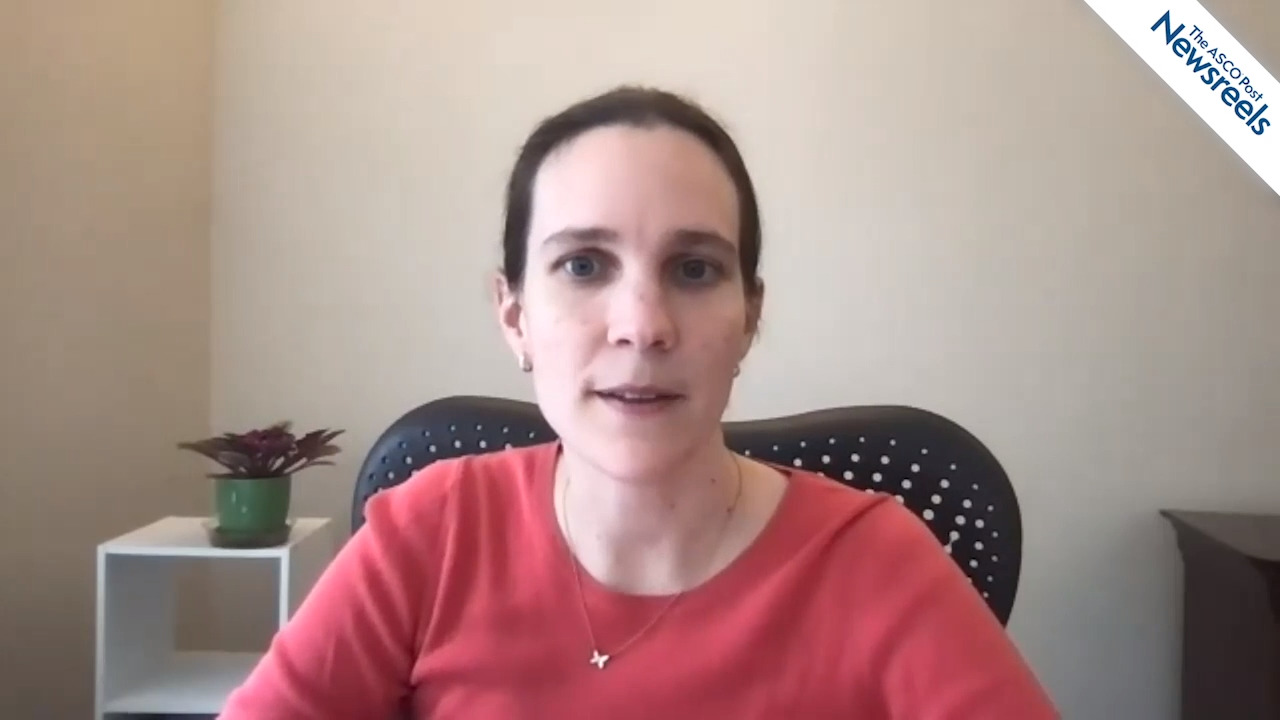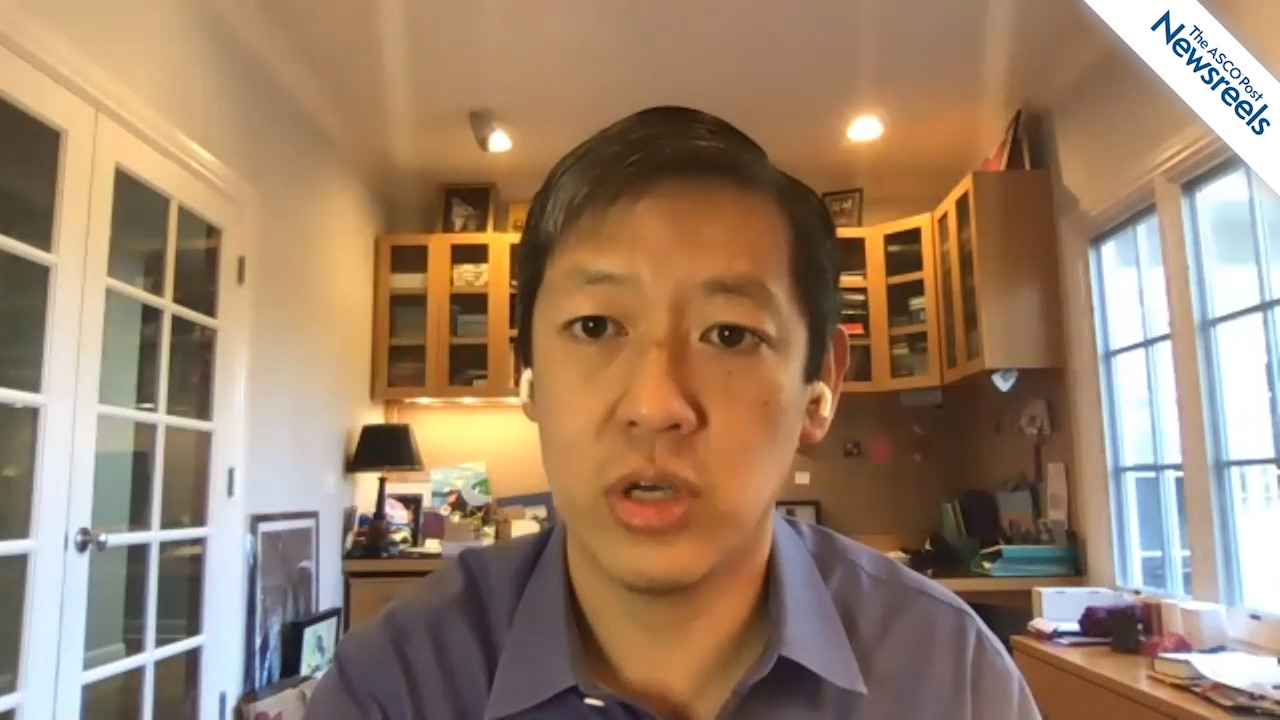Christopher Sweeney, MBBS, and Thomas Powles, MD, PhD, on Treating GU Malignancies: Expert Views
2021 Genitourinary Cancers Symposium
A spirited discussion ensued when we asked Christopher Sweeney, MBBS, of Dana-Farber Cancer Institute, and Thomas Powles, MD, PhD, of Cancer Research UK Barts Centre, to compare notes on how they treat bladder, prostate, and kidney cancers.
The ASCO Post Staff
Thomas Powles, MD, PhD, of Cancer Research UK Barts Centre, discusses phase III results from the EV-301 trial, which showed that enfortumab vedotin is the first therapy to demonstrate a significant survival advantage over standard chemotherapy in patients with previously treated locally advanced or metastatic urothelial carcinoma (Abstract 393).
The ASCO Post Staff
Daniel M. Geynisman, MD, of Fox Chase Cancer Center, discusses phase II results from the RETAIN BLADDER study, which sequenced bladder tumor samples while treating patients with neoadjuvant methotrexate, vinblastine, doxorubicin, and cisplatin chemotherapy. The goal was to increase metastasis-free survival and also preserve the bladder and quality of life (Abstract 397).
The ASCO Post Staff
Elizabeth R. Plimack, MD, of Fox Chase Cancer Center, discusses phase III results from the KEYNOTE-426 study—specifically, an exploratory subgroup analysis of patients with advanced renal cell carcinoma who were randomly assigned to receive pembrolizumab plus axitinib and completed 2 years of treatment (Abstract 327).
The ASCO Post Staff
Tracy L. Rose, MD, of the University of North Carolina at Chapel Hill, discusses phase II results of gemcitabine and split-dose cisplatin plus pembrolizumab as neoadjuvant therapy prior to radical cystectomy for patients with muscle-invasive bladder cancer. The trial showed this combination treatment is generally safe and may improve pathologic downstaging, but further study is warranted (Abstract 396).
The ASCO Post Staff
Felix Y. Feng, MD, of the University of California, San Francisco, discusses study findings showing that molecular determinants may help clinicians select patients with nonmetastatic castration-resistant prostate cancer who may derive the most benefit from apalutamide and other androgen-signaling inhibitors (Abstract 8).
